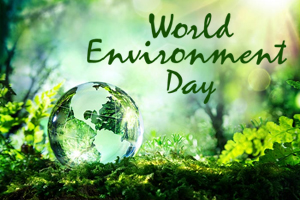 “The only way forward, if we are going to improve the quality of the environment, is to get everybody involved.” – Richard Rogers
“The only way forward, if we are going to improve the quality of the environment, is to get everybody involved.” – Richard Rogers
Have you done your share in preserving the environment? Today, 5th June is World Environment Day, the United Nation’s drive that encourages worldwide awareness and action for environment protection. This year’s theme is “Connecting People with Nature.” Everyone is encouraged to go outdoors and be one with nature to appreciate the beauty of the planet. It also promotes the importance of protecting our beautiful earth for future generations.
There is a different global host country every year, where the official WED celebrations happen. The focus highlights the environmental issues the host country faces, and supports the movements to help resolve them. This year’s host country is Canada.
What you can do for World Environment Day 2017
This year’s theme actually makes us realise how we are part of nature and how we are dependent on it. Getting involved for World Environment Day 2017 isn’t actually difficult. Would you believe that all you have to do is appreciate nature? It can be as simple as going to your local park, lake, sea or countryside. However, don’t just look, experience it! Take off your shoes, jump in the water or even hug the trees. While doing so, share your wonderful photos on social media like Facebook, Instagram and Twitter, and using the hashtag #worldenvironmentday.
WED also invites everyone to do simple environment-saving activities such as planting trees and organising clean-up drives. There are other simple ways of helping save our dear mother earth that we can do all year-round. These include walking and cycling instead of using your car, as well as recycling and keeping track of the trash. Lastly, avoid food wastage by buying just enough for your consumption and/or donating to food banks.
About World Environment Day
World Environment Day is an annual celebration every 5th June that began in 1972. It raises awareness on evolving environmental issues. These include global warming, human overpopulation, sustainable consumption, marine pollution, and wildlife crime. With more than 143 participating countries, it has become a worldwide platform that enables public outreach.
 English
English 中文
中文
